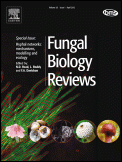
Fungal Biology Reviews
metrics 2024
Pioneering Perspectives in Fungal Biology
Introduction
Fungal Biology Reviews is a premier academic journal published by Elsevier Science Ltd, focusing on the rapidly evolving field of fungal biology. With an ISSN of 1749-4613 and an E-ISSN of 1878-0253, this journal has established itself as a leading resource for researchers, academics, and professionals dedicated to advancing our understanding of fungi and their ecological, agricultural, and medical implications. As a testament to its impact and quality, Fungal Biology Reviews holds a distinguished Q1 classification in both Microbiology and Plant Science categories for 2023, with a notable rank of 26 out of 182 in the Microbiology category. The journal uniquely blends comprehensive reviews that synthesize current research findings with forward-looking perspectives that pave the way for future studies, making it indispensable for anyone involved in fungal research. Although it operates under a traditional access model, its commitment to fostering impactful scholarship ensures that it remains relevant and widely cited within the academic community. Spanning from its inception in 2007 through to its projected conclusion in 2024, Fungal Biology Reviews continues to shape the framework for future discoveries in fungal biology.
Metrics 2024
 1.27
1.27 5.70
5.70 5.70
5.70 65
65Metrics History
Rank 2024
Scopus
IF (Web Of Science)
JCI (Web Of Science)
Quartile History
Similar Journals
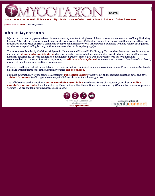
MYCOTAXON
Connecting Ecosystems Through Fungal InsightsMYCOTAXON is a peer-reviewed journal dedicated to the field of mycology, focusing on the taxonomy, systematics, and ecology of fungi. Published by MYCOTAXON LTD, this journal plays a crucial role in advancing our understanding of fungal biodiversity and its significance within various ecosystems. Although it currently does not offer open access options, its contributions are vital to the scientific community, especially with its established presence since 1989. With an HIndex reflecting its relevance and attracting a dedicated readership, MYCOTAXON is recognized within the Q4 quartile in both Ecology, Evolution, Behavior, and Systematics, and Plant Science categories as of 2023. This places it among a critical cohort of journals that contribute to the understanding of ecological dynamics and plant-fungal interactions. Researchers, professionals, and students can benefit from the insights provided in MYCOTAXON, making it an indispensable resource for anyone involved in the study of fungi.

FUNGAL GENETICS AND BIOLOGY
Innovating Insights into Fungal GeneticsFungal Genetics and Biology is a leading peer-reviewed journal published by Academic Press Inc, Elsevier Science, dedicated to advancing the understanding of fungi through innovative genetic and biological research. Since its inception in 1996, this journal has served as a vital platform for the dissemination of critical findings in the fields of Genetics and Microbiology, maintaining a distinguished Q2 category ranking in both disciplines as of 2023. With an ISSN of 1087-1845 and an E-ISSN of 1096-0937, the journal emphasizes the intersection of genetics and molecular biology to explore fundamental questions related to fungal biology that are of paramount importance to various applications in biotechnology, medicine, and environmental science. Researchers, professionals, and students alike will find this journal invaluable as it not only covers current trends and breakthroughs but also encourages collaborative efforts across the scientific community. Fungal Genetics and Biology continues to shape the future of fungal research well into 2024 and beyond, offering rich insights and open access options for a global audience.
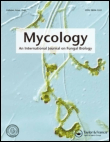
Mycology-An International Journal On Fungal Biology
Unlocking the Mysteries of Fungal BiologyMycology: An International Journal on Fungal Biology, published by Taylor & Francis Ltd, stands at the forefront of fungal research, facilitating the dissemination of knowledge across the diverse fields of infectious diseases, microbiology, and plant science. Established as an Open Access journal since 2010, it offers researchers free and immediate access to high-quality articles that advance our understanding of fungal biology and its applications. With a commendable ranking in Q2 for Infectious Diseases and Microbiology, and Q1 for Plant Science as of 2023, it positions itself as a vital resource for the global scientific community. The journal, conveniently located in the United Kingdom, is committed to publishing rigorous research that stimulates discussion and fosters collaboration among academics, practitioners, and students alike. By providing a platform for innovative studies and critical reviews, Mycology continues to play an essential role in unraveling the complexities of fungal organisms and their profound implications in health, agriculture, and ecosystem dynamics.
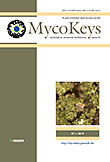
MycoKeys
Advancing fungal research for a sustainable future.MycoKeys, published by PENSOFT PUBLISHERS, is a leading open-access journal dedicated to advancing the understanding of fungal biology and its diverse implications within agricultural, ecological, and biological sciences. With its ISSN 1314-4057 and E-ISSN 1314-4049, this journal has achieved remarkable academic prestige, reflected in its 2023 Scopus rankings placing it in the first quartile (Q1) across several categories, including Agricultural and Biological Sciences (miscellaneous), Ecology, Evolution, Behavior and Systematics, and Plant Science. MycoKeys provides a platform for researchers, professionals, and students interested in the latest findings and methodologies regarding fungi, their environments, and their interactions within various ecosystems. Since its transition to open access in 2011, the journal has championed the dissemination of high-quality research to a global audience, fostering collaboration and innovation in mycology. With a publishing history that converges from 2015 to 2024, MycoKeys remains a vital resource for those committed to exploring the multifaceted roles fungi play in our world.
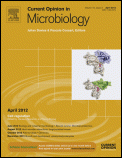
CURRENT OPINION IN MICROBIOLOGY
Delivering timely reviews for the microbiology community.CURRENT OPINION IN MICROBIOLOGY is a prestigious academic journal published by CURRENT BIOLOGY LTD, dedicated to advancing the field of microbiology through timely and insightful reviews. With an ISSN of 1369-5274 and an e-ISSN of 1879-0364, this journal has established itself as a leading source of knowledge in various subfields, consistently achieving a Q1 ranking in Infectious Diseases and Microbiology for 2023. Operating from the United Kingdom, CURRENT OPINION IN MICROBIOLOGY serves a critical role for researchers, clinicians, and students alike by disseminating groundbreaking findings and fostering discussions that shape the future of microbiological research. The journal's rigorous selection process ensures that only high-quality articles are published, reflecting its strong impact factor and high percentile rankings across relevant Scopus categories. Although it does not follow an open-access model, its comprehensive scope and valuable contributions to the medical and scientific community underscore its importance as an essential resource for advancing our understanding of microbial sciences.
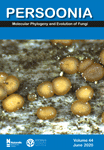
PERSOONIA
Advancing Knowledge in Ecology and Plant SciencePERSOONIA, a distinguished journal published by RIJKSHERBARIUM, serves as a pivotal platform for the dissemination of high-quality research in the fields of Ecology, Evolution, Behavior, and Systematics, as well as Plant Science. Established with a commitment to advancing scientific knowledge, PERSOONIA has achieved an impressive Q1 ranking in these areas, highlighting its significant impact within the academic community, as evidenced by its ranking of #12 out of 721 journals in its field, placing it in the top 2% of publications. With a publication history that spans from 1996 to present, the journal regularly features innovative studies that push the boundaries of understanding in ecological and botanical sciences. While Open Access options are currently limited, researchers and professionals alike benefit from subscription access to this vital resource. Located in the Netherlands, PERSOONIA continues to be a beacon for scholars aiming to enrich the discourse in evolving ecological and plant science disciplines.
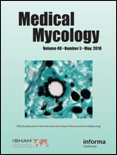
MEDICAL MYCOLOGY
Illuminating the Pathways of Fungal PathogenesisMEDICAL MYCOLOGY, published by Oxford University Press, is a premier journal dedicated to the study of fungal infections and their clinical implications. With an ISSN of 1369-3786 and an E-ISSN of 1460-2709, this journal has established itself as a vital resource in the fields of Infectious Diseases and Medicine, holding a respectable Q2 ranking for both categories and a Q1 ranking in the veterinary sector in 2023. Spanning a rich history from 1962 to 2024, MEDICAL MYCOLOGY serves as a platform for innovative research, case reports, and review articles that contribute to the understanding and management of mycological diseases. The journal's commitment to advancing knowledge is reflected in its Scopus rank of #120 out of 344 in Medicine - Infectious Diseases, positioning it within the 65th percentile. With open access options available, it aims to ensure that critical research is accessible to a global audience, enhancing collaboration and knowledge sharing among researchers, healthcare professionals, and students alike.

JOURNAL OF BASIC MICROBIOLOGY
Pioneering Research for a Healthier TomorrowJOURNAL OF BASIC MICROBIOLOGY is a premier publication in the field of microbiology, published by WILEY since 1985. With a significant presence in Germany, this journal encompasses a wide spectrum of research topics, focusing on applied microbiology and biotechnology as well as diverse areas within medicine. Holding a commendable Q2 ranking in both its categories for 2023, it plays a crucial role in disseminating innovative findings and methodologies to the community. Researchers will find it to be an essential platform for sharing high-quality work, where it currently stands at rank #47 in the applied microbiology and biotechnology category, representing the 63rd percentile among international journals. The JOURNAL OF BASIC MICROBIOLOGY caters to a growing audience of professionals and students, offering insights essential for advancement in microbiological research and its applications. While it does not currently offer an Open Access option, it remains an influential outlet for academic excellence, continuously contributing to the development of the field through its rigorous peer-reviewed articles.

Mycosphere
Exploring the intricate connections of fungi and ecosystems.Mycosphere is a premier open-access journal published by MYCOSPHERE PRESS, dedicated to advancing the field of mycology and contributing significant insights into ecological and plant sciences. Established in 2010 and headquartered in Guiyang, China, this journal has carved out a vital niche, achieving remarkable rankings in the Scopus database—#3 in Ecology, Evolution, Behavior and Systematics and #4 in Plant Science, both boasting a 99th percentile ranking. With an unwavering commitment to disseminating high-quality research, Mycosphere serves as a critical platform for researchers, professionals, and students alike, encouraging robust dialogue and collaborations across the global scientific community. The journal's accessibility, coupled with its impact factor and Q1 categorizations in 2023 for both ecology and plant sciences, substantiate its role as an essential resource for cutting-edge studies and innovations in the field.
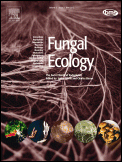
Fungal Ecology
Cultivating Understanding of Fungal Impact on NatureFungal Ecology, published by Elsevier Science Ltd, is a leading international journal dedicated to the exploration and advancement of our understanding of fungal biology and its ecological significance. With an impressive impact factor and recognized in the second quartile (Q2) across various categories such as Ecological Modeling, Ecology, Ecology, Evolution, Behavior and Systematics, and Plant Science, this journal offers a critical platform for researchers and professionals to disseminate and discuss innovations in fungal ecology. Since its inception in 2008, the journal has built a solid reputation, particularly highlighted by its impressive Scopus rankings, including a top percentile status in ecological fields. Researchers are encouraged to submit their findings that contribute to the understanding of the ecological roles of fungi, their interactions within ecosystems, and their applications in environmental science. Although the journal does not offer open access, it remains a vital resource for academics and practitioners aiming to stay ahead in the rapidly evolving fields of fungal research and ecology. Located in the vibrant heart of the Netherlands, the journal continues to foster scholarly engagement and collaboration among scientists globally.